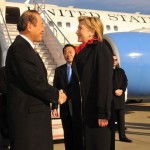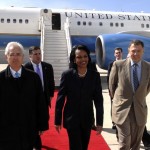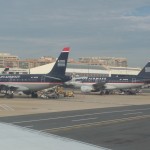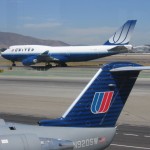In air with Clinton on first trip abroad
 Have you ever wondered what it’s like traveling with the secretary of state around the world? Although I’ve been doing it for more than eight years, I’ve resisted frequent suggestions by friends and colleagues to write about it.
Have you ever wondered what it’s like traveling with the secretary of state around the world? Although I’ve been doing it for more than eight years, I’ve resisted frequent suggestions by friends and colleagues to write about it.
Now I’ve found an excuse. There is a new secretary — Hillary Rodham Clinton no less — and she has just completed her first overseas trip since taking office. So it’s time to step back from what has become a routine for us in the press corps and try to look at it through a fresh pair of eyes. The State Department usually gives us 13 seats on the secretary’s plane, but this time we got three more, to accommodate the bigger interest in Mrs. Clinton’s maiden voyage to Asia.





